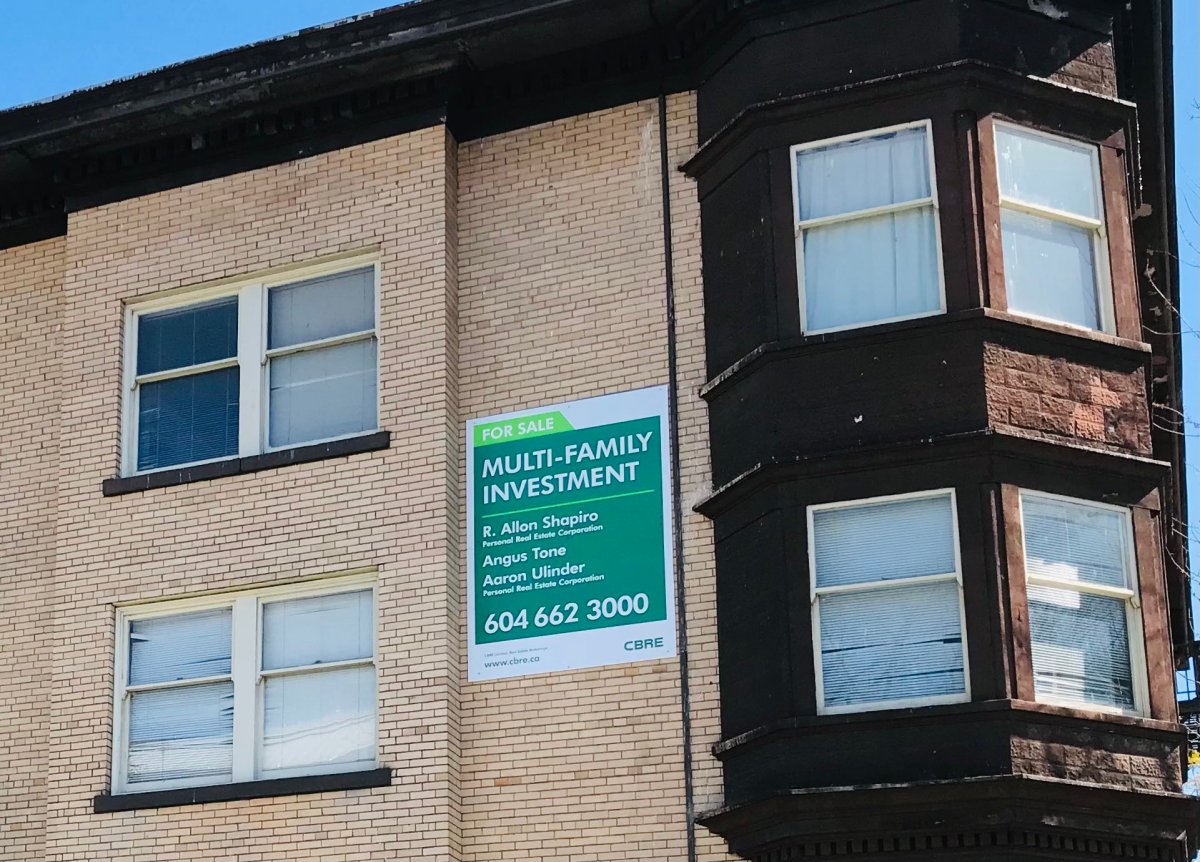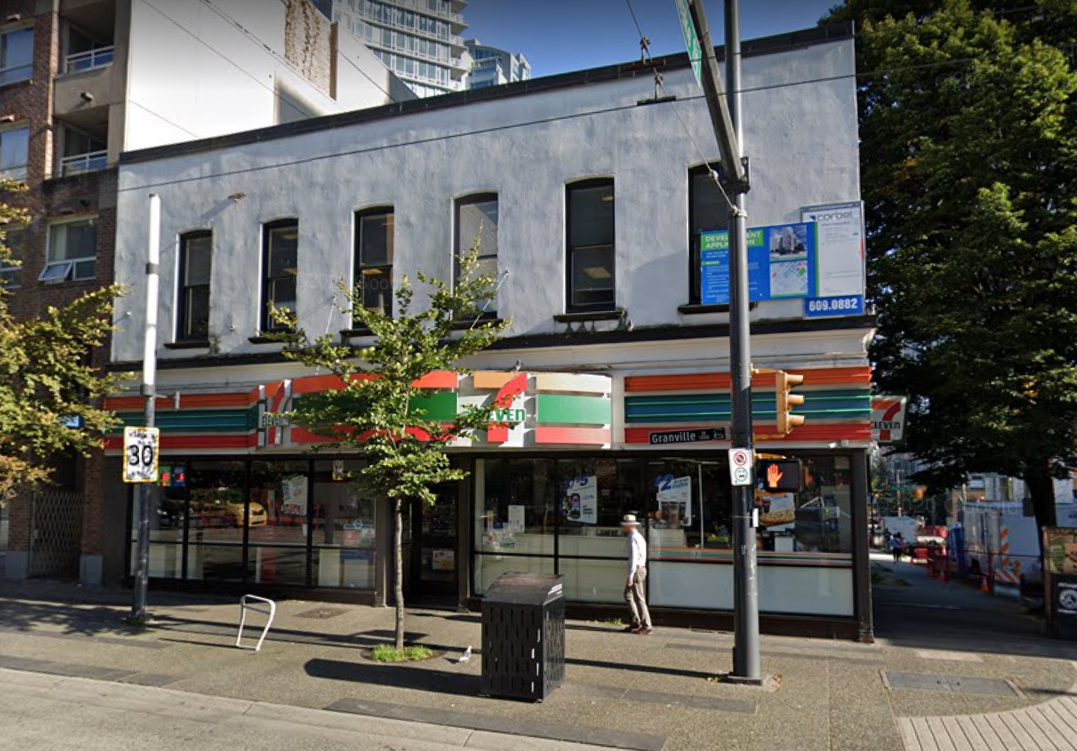Heritage advocates are demanding the City of Vancouver work faster to update its heritage register as some of its oldest structures face imminent or future demolition.

This inventory of homes and buildings deserving protection was created in 1986 for Vancouver’s centennial. A consultants’ report that would update the register with hundreds of new additions has been stalled at City Hall since 2017.
Author and heritage advocate Michael Kluckner feels the wheels have fallen off the program.
“In 2016-17, the city began to move really strongly to cultural heritage, intangibles — tangible heritage being a house or building,” Kluckner says.
He says the approach comes out of reconciliation and social justice. And while he says it’s good Vancouver has moved in that direction, the city has “largely abandoned 35 years of public investment in a more traditional ‘saving building’ type of heritage, including the surviving buildings in the downtown Vancouver area.”
Some buildings currently facing a bleak future that are not on the register include the 1911 Rougemont Apartments at 1689 Robson St., the 1888-89 Keith Block at 1294 Granville St., and the 1907-1909 Loo Building at 404 Abbott St.
Heritage Vancouver lists the Keith Block as one of the oldest constructed buildings on Granville and one of the earliest outside of Gastown. It was built around the same time as the Yale Hotel across the street at a time when part of downtown was still forested.
Kluckner says he feels neighbourhoods with strong heritage character are being chipped away because of new priorities by new types of development. In particular, he says the city’s own building codes make it difficult to retain old buildings.
“I’m talking Kitsilano, Mt. Pleasant along the Broadway Subway that could be destabilized with the kind of upzoning the city is proposing,” Kluckner says.
“That’s bigger than the individual projects, some of which have worked out in a kind of Vancouver way with just facades kept in some cases. It’s the best that could be done under the circumstances, I guess.”
Another problem with the current heritage register is that the property owner has to give permission for a building to be put on the inventory.
Kluckner claims the city sends many mixed messages in an extremely complex process.
“You see people shying away because they don’t know what kind of bureaucratic nightmare they’re going to get into if their building goes on the register,” he says.
“It’s not clear to the average person what is meant by being on the register. The register traditionally has just meant that you’re on a list and your building has some historic or architectural significance. If you’re willing to keep it, the city is willing to offer some incentives for some density and relaxation here and there. The city now offers that package for much of the other things it wants to do, such as affordability and rental. The whole matter of city policy and competing priorities is just a mystery to most people.”

Civic historian and heritage consultant John Atkin says there are two problems with the 1986 register. One is that it looks at the physical style, but not the historical significance of what happened in the building. Another is the requirement of getting the owner’s permission.
“It was a windshield survey across the city going on the visual only,” he says. “You’re not going on any other layer. So the way heritage thought has evolved is that the physical building is important with style and things, but there’s a whole raft of values that go with it, too.
“So you can have the ugliest building on earth, but it could have important labour history and major decisions that have affected the city over time. Then that has value over architecture. The one thing the register does not do is capture any of that, at all.”
Atkin says he believes heritage registers are only useful if they’re living documents that are constantly reviewed and updated as attitudes change. Early heritage focus was on a “preservationist” idea of keeping structures because of their appearance.
“It didn’t matter who lived there, it was all about the architecture. But we’ve moved on from that. One of the things the register has not done is adapt. A lot of heritage practice now is values-based: Why is this property important?”
He adds the stalled 2017 heritage update didn’t take into account reconciliation.
“If you’re going to look at your heritage, then that’s all-encompassing. I think we didn’t do that work and that’s really bad. We’re on unceded territory. How do we deal with settler heritage and history and all the other values? Because that wasn’t done, then the city stalled it and said they couldn’t update the register. The heritage we’re dealing with and how we’re dealing with it is very much rooted in the 1980s.”

The city’s heritage planning department says it does annual updates to the register (including demolitions), usually toward the end of the year.
“There are plans for a major VHR upgrade in the near future that may bring some new categories in and fill in some gaps that were identified in the current document and related processes,” the department says in a statement.
As far as upgrades, the city adds that it will look into “the heritage evaluation process, more balanced representation of typologies of buildings or historic place, historic areas, historic streetscapes, missed properties, inclusion of cultural and intangible heritage, including Indigenous Cultural Heritage and heritage of racialized communities.”
It lists a number of recent heritage restoration success stories in Vancouver, including the Main Post Office, Avalon Dairy, B&K Grocery and Kirkland’s Metal Shop.
Sarah-Kirby Yung, an NPA councillor who recently helped support neighbourhood grocery stores, agrees it’s time to complete the register upgrade.
“This is an important and time-sensitive step that needs to be taken. Supporting greater visibility for our Indigenous people is overdue. As well, with rapid development in our young city, we are losing our heritage without quick moves to protect and embed it into the new evolution of the city.”







Comments